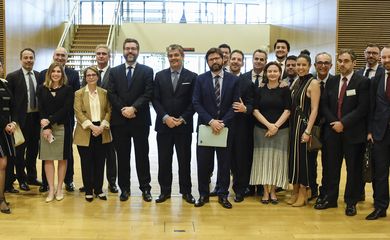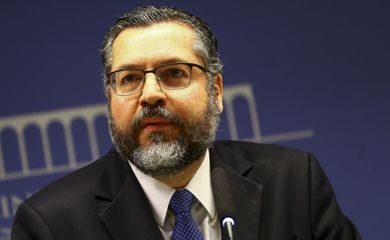Minister: EU deal “comfortable” for Brazil agriculture


Brazil’s Minister of Agriculture, Livestock, and Supply Tereza Cristina said Monday (Jul 1) that the free-trade agreement signed between the Southern Common Market (Mercosur) and the European Union (EU) is “comfortable” and in accordance with the interests of Brazil and Brazilian agriculture.

“I believe we were able to overcome the barrier we had, and the text was very comfortable for what Brazil and Brazilian agriculture wanted,” the minister said after attending an event at the Confederation of Agriculture and Livestock of Brazil, in Brasília.
Tereza Cristina described the deal as beneficial for both blocs and said it should be approved by the Brazilian Congress in the next two years.
“The impacts are mostly beneficial for Brazil, especially for agriculture. We had a number of product quotas reduced to zero, and others were slashed significantly. This unblocks Brazil and brings modernization to our farming, with machinery that we don’t have yet,” she said. The pact is also expected to benefit industry, services, and public works, she added.
As for potential problems stemming from the precautionary principle—a guarantee against possible risks still unidentified—she said, “This was one of the difficult issues to overcome, because the European Union bases this on its latest deals, and the European Parliaments no longer accept agreements if this principle isn’t explicitly included,” she noted.
Under the precautionary principle, preventive measures may be adopted in the absence of a formal scientific certification on risks of significant or irreversible damage.
The minister denied that recent permits to use pesticides previously banned in Brazil may result in more commercial obstacles against the country. “Brazil doesn’t cross waste limits in its exports. We’ve been signing international protocols that must be observed, and all of them are. There are a lot of people mixing up topics that shouldn’t be mixed or confused,” the minister argued.
Protectionism
Minister Tereza Cristina noted that the environment is often mentioned by the European countries as a strategy to guarantee markets. “They want to denigrate the image of Brazil when it comes to the environment in order to hinder commerce. I don’t think our products have any sort of problem. On the contrary, they are consumed more and more worldwide. And Europe needs them.”
“Brazil and the US are the only countries that can tackle the food shortage we’ll face in the coming 30 years. Both are global food powers and Europe knows it. There are French and Irish producers who want this market reserve that the delay left for Brazil. But I think Brazil went for the penalty kick and scored,” she said.






